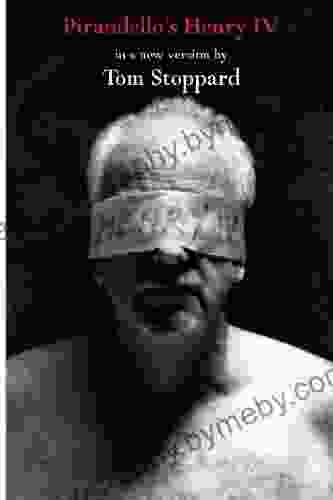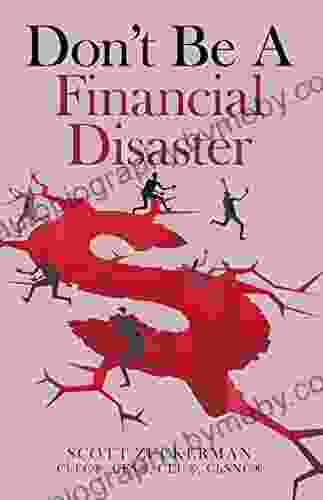Unveiling the Enigma of Identity through the Prism of Pirandello, Henry IV, and Tom Stoppard


In the realm of drama, the exploration of identity has been a perennial theme, captivating audiences with its complexities and profound insights. Three towering figures in the literary landscape - Luigi Pirandello, Tom Stoppard, and Bertolt Brecht - have delved into this existential labyrinth, weaving intricate narratives that challenge our understanding of self and reality. This article will embark on a literary adventure, tracing the evolving perspectives on identity through the prism of their iconic works: Pirandello's "Henry IV," Stoppard's "Rosencrantz and Guildenstern are Dead," and Brecht's "Life of Galileo."
4.6 out of 5
| Language | : | English |
| File size | : | 450 KB |
| Text-to-Speech | : | Enabled |
| Enhanced typesetting | : | Enabled |
| Print length | : | 80 pages |
| Screen Reader | : | Supported |
Luigi Pirandello: Unveiling the Fragmented Self
Luigi Pirandello, an Italian playwright and Nobel laureate, emerged as a pioneer in the exploration of identity's fluidity and the malleability of truth. His masterpiece, "Henry IV," delves into the depths of a man's shattered psyche, blurring the boundaries between reality and illusion. The protagonist, Henry IV, is a historical reenactor who has remained trapped in the persona of the eponymous German emperor for twenty years following a traumatic accident.
Pirandello masterfully utilizes the play's structure to reflect the fragmented nature of identity. The narrative unfolds through a series of flashbacks, intermingled with scenes set in the present, creating a disorienting and dreamlike atmosphere. Through the eyes of Henry's psychiatrist, we witness the protagonist's struggle to reconcile his true self with the constructed identity he has adopted.
The play explores the profound psychological and societal implications of identity fragmentation. Pirandello challenges the notion of a fixed and immutable self, arguing that our identities are constantly shaped by our experiences and interactions. By blurring the lines between madness and sanity, he invites us to question the very nature of reality and the illusion of truth.
Tom Stoppard: Identity as a Role in the Theatre of Life
Tom Stoppard, a British playwright and screenwriter, has inherited the mantle of Pirandello, continuing the exploration of identity's complexities in a postmodern context. His groundbreaking play, "Rosencrantz and Guildenstern are Dead," reimagines the minor characters from Shakespeare's "Hamlet" as the protagonists of their own existential drama.
Stoppard deftly uses meta-theatrical devices to expose the constructed nature of identity. The play-within-a-play format constantly reminds the audience that the characters are merely actors performing roles. Rosencrantz and Guildenstern, trapped in a pre-determined narrative, desperately seek agency and meaning in their predetermined lives.
Stoppard's exploration of identity is closely intertwined with the theme of free will and predetermination. He suggests that our identities are not only shaped by our past experiences but also by the expectations and conventions imposed upon us by society. The play's , where Rosencrantz and Guildenstern meet their untimely demise, underscores the tragic futility of their struggle for self-determination.
Bertolt Brecht: Identity as a Social Construct
Bertolt Brecht, a German playwright and director, approached the exploration of identity from a distinctly political and Marxist perspective. In his epic play, "Life of Galileo," he delves into the conflict between individual conscience and societal pressures. The protagonist, Galileo Galilei, is a brilliant astronomer who faces persecution and imprisonment for his heliocentric theories that challenge the prevailing geocentric worldview.
Brecht's play examines identity in the context of power dynamics and social structures. Galileo's adherence to scientific truth puts him at odds with the dominant religious and political authorities, forcing him to confront the fragility of his own individual identity in the face of collective opposition.
Brecht's exploration of identity is deeply intertwined with his theory of "epic theater." Epic theater aims to alienate the audience from the narrative, preventing them from becoming emotionally invested in the characters' fates. By distancing the audience from the characters, Brecht invites them to critically examine the play's themes and their own relationship to the historical events depicted.
The works of Pirandello, Stoppard, and Brecht have profoundly shaped our understanding of identity, offering multifaceted perspectives on its fluidity, constructed nature, and social implications. Through their groundbreaking plays, they have challenged conventional notions of self, inviting us to grapple with the complex interplay between our inner truths and the external forces that shape us.
As we continue to navigate the ever-evolving landscape of identity in the 21st century, the insights provided by these literary giants remain invaluable. Their works continue to resonate with audiences worldwide, inspiring us to question our own identities, embrace our complexities, and strive for self-understanding in a world where definitions are fluid and truth is elusive.
4.6 out of 5
| Language | : | English |
| File size | : | 450 KB |
| Text-to-Speech | : | Enabled |
| Enhanced typesetting | : | Enabled |
| Print length | : | 80 pages |
| Screen Reader | : | Supported |
Do you want to contribute by writing guest posts on this blog?
Please contact us and send us a resume of previous articles that you have written.
 Book
Book Novel
Novel Page
Page Chapter
Chapter Text
Text Story
Story Genre
Genre Reader
Reader Library
Library Paperback
Paperback E-book
E-book Magazine
Magazine Newspaper
Newspaper Paragraph
Paragraph Sentence
Sentence Bookmark
Bookmark Shelf
Shelf Glossary
Glossary Bibliography
Bibliography Foreword
Foreword Preface
Preface Synopsis
Synopsis Annotation
Annotation Footnote
Footnote Manuscript
Manuscript Scroll
Scroll Codex
Codex Tome
Tome Bestseller
Bestseller Classics
Classics Library card
Library card Narrative
Narrative Biography
Biography Autobiography
Autobiography Memoir
Memoir Reference
Reference Encyclopedia
Encyclopedia Andrea Stehle
Andrea Stehle Patti Lupone
Patti Lupone Amy Fielding
Amy Fielding Nathalie Kalbach
Nathalie Kalbach Melissa Ackerman
Melissa Ackerman Michael Sullivan Iii
Michael Sullivan Iii Nojis Books
Nojis Books Laura Schroff
Laura Schroff Nicole M Avena Ph D
Nicole M Avena Ph D Amy Chua
Amy Chua Gene D Phillips
Gene D Phillips Andrea Olson
Andrea Olson Anat Baniel
Anat BanielE L I
 Andrew Grant
Andrew Grant Joseph Agonito
Joseph Agonito Sir Peter Hall
Sir Peter Hall Andy Steves
Andy Steves Andrew Skurka
Andrew Skurka Larry Dean Olsen
Larry Dean Olsen
Light bulbAdvertise smarter! Our strategic ad space ensures maximum exposure. Reserve your spot today!
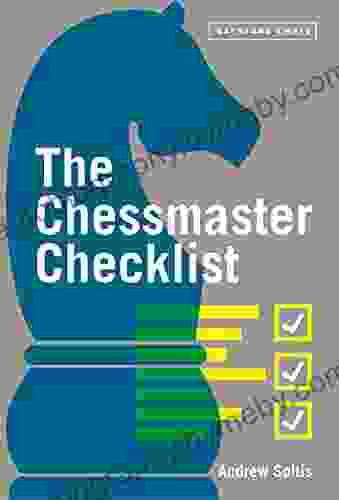
 David PetersonUnlock Your Chess Mastery with "The Chessmaster Checklist" by Andrew Soltis
David PetersonUnlock Your Chess Mastery with "The Chessmaster Checklist" by Andrew Soltis
 Henry HayesThe Diagnosis Was Bad, The Aftermath Was Calamitous: My New Life As a Medical...
Henry HayesThe Diagnosis Was Bad, The Aftermath Was Calamitous: My New Life As a Medical... Reginald CoxFollow ·5.2k
Reginald CoxFollow ·5.2k Brandon CoxFollow ·11.6k
Brandon CoxFollow ·11.6k Bryson HayesFollow ·16.9k
Bryson HayesFollow ·16.9k Milton BellFollow ·10.9k
Milton BellFollow ·10.9k Todd TurnerFollow ·5.7k
Todd TurnerFollow ·5.7k Marcus BellFollow ·13.2k
Marcus BellFollow ·13.2k Aubrey BlairFollow ·6.2k
Aubrey BlairFollow ·6.2k Isaac BellFollow ·19.9k
Isaac BellFollow ·19.9k

 Bryce Foster
Bryce FosterCelebrate the Luck of the Irish: Unveiling Saint...
As the verdant hues of spring brush...
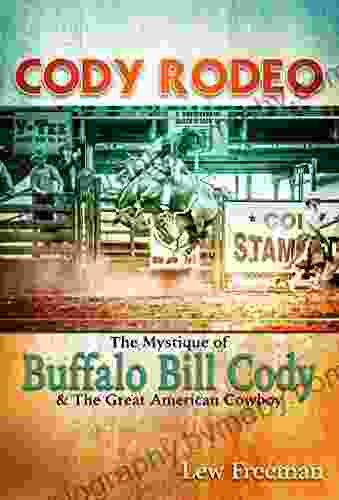
 Chase Simmons
Chase SimmonsCody Rodeo: A Photographic Journey into the Heart of the...
Step into the arena of the...

 David Mitchell
David MitchellUnveiling the Enchanting World of Door County Quilts: A...
Step into the Heart of Amish Country in...

 Floyd Powell
Floyd PowellCowboy Chatter: Unraveling the Enigmatic Tales of the Old...
Step into the...

 Ismael Hayes
Ismael HayesUnlock Content Marketing Mastery: How to Create...
In today's digital landscape, content is...
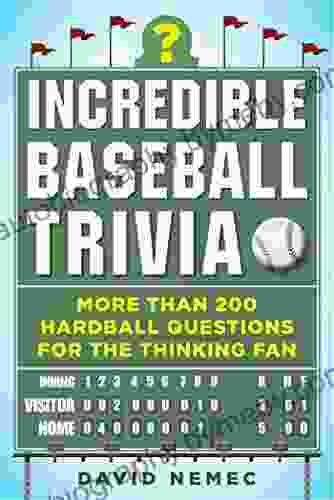
 Boris Pasternak
Boris PasternakMore Than 200 Hardball Questions For The Thinking Fan
The Ultimate Baseball Trivia Challenge Are...
4.6 out of 5
| Language | : | English |
| File size | : | 450 KB |
| Text-to-Speech | : | Enabled |
| Enhanced typesetting | : | Enabled |
| Print length | : | 80 pages |
| Screen Reader | : | Supported |


